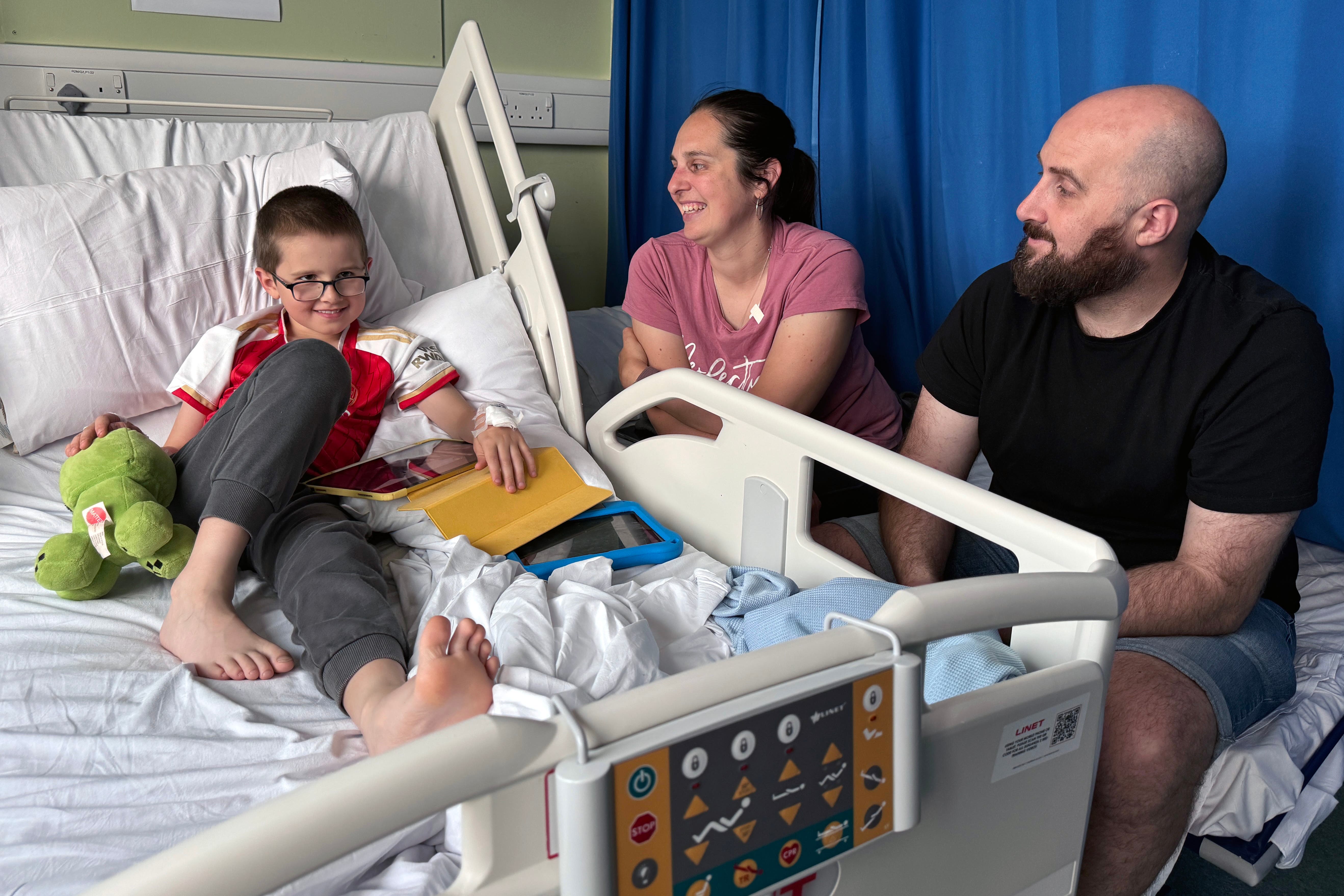Boy, seven, first UK kidney patient to undergo ‘pioneering’ robotic surgery
Reece Wilson underwent the operation involving the Versius Surgical Robot System at Southampton Children’s Hospital.

Your support helps us to tell the story
From reproductive rights to climate change to Big Tech, The Independent is on the ground when the story is developing. Whether it's investigating the financials of Elon Musk's pro-Trump PAC or producing our latest documentary, 'The A Word', which shines a light on the American women fighting for reproductive rights, we know how important it is to parse out the facts from the messaging.
At such a critical moment in US history, we need reporters on the ground. Your donation allows us to keep sending journalists to speak to both sides of the story.
The Independent is trusted by Americans across the entire political spectrum. And unlike many other quality news outlets, we choose not to lock Americans out of our reporting and analysis with paywalls. We believe quality journalism should be available to everyone, paid for by those who can afford it.
Your support makes all the difference.A seven-year-old boy has become the first patient in the UK to undergo a new form of robotic surgery for a kidney condition.
Reece Wilton, from Gosport, Hampshire, underwent the “pioneering” operation involving the Versius Surgical Robotic System at Southampton Children’s Hospital (SCH), part of University Hospital Southampton (UHS).
The youngster was diagnosed with pelviureteric junction obstruction, a condition in which there is a blockage or obstruction of urine flow from the kidney into the ureter.
The condition affects between one in 1,000 and one in 1,500 children, and if left untreated can lead to loss of kidney function over time.
Consultant paediatric urologist Ewan Brownlee performed the robotic-assisted laparoscopic pyeloplasty procedure, which involved repairing the narrowing at the junction of the kidney pelvis and ureter.
Mr Brownlee said: “This has been three years in the making so it’s really exciting for the whole paediatric urology team, and paediatric urology in the UK, that the first operation has finally taken place.
“The evidence for use of robotics in surgery shows clear benefits for patients, from quicker healing time and smaller scars to, in some cases, better overall outcomes.
“I’m hoping that this is the start of seeing an increase in minimally invasive surgery for children all around the UK when this becomes more widely available.”
I think this will be one of the most exciting developments within the field of paediatric urology over the next 10 years
Reece’s mother, Elizabeth Wilton, said: “Reece was nervous about his operation before, but we showed him pictures and he was quite excited to know a robot was operating on him.
“We have complete faith in the team at Southampton Children’s Hospital and we are incredibly happy that Reece is benefiting from this pioneering trial.”
The robotic surgery system has a 720-degree range of motion which allows the surgical instruments to be small enough to perform complex operations on paediatric patients and is being used as part of a study which will involve 150 patients.
The robot, created by UK company CMR Surgical, uses a unique “wrist rotation” for easy manipulation of the tip of the instrument, which allows for the instruments to be smaller than otherwise commercially available, minimising the size of incision required.
We are delighted to begin the world’s first paediatric trial using Versius in the UK
Stephen Griffin, consultant paediatric urologist at UHS, who assisted during the operation, said: “Personally, I think this will be one of the most exciting developments within the field of paediatric urology over the next 10 years.”
UHS chief medical officer Paul Grundy said: “We are proud to be at the heart of the research that will hopefully lay the foundations for others in the near future.”
Mark Slack, co-founder and chief medical officer at CMR Surgical, said: “We are delighted to begin the world’s first paediatric trial using Versius in the UK.
“The small, modular design of Versius, and small instrument diameter, provides an opportunity to be able to perform robotic-assisted surgery for the treatment of paediatric patients.”
Professor Naeem Soomro, vice chairman, future of surgery at The Royal College of Surgeons of England, said: “Robotic-assisted surgery (RAS) can be a suitable option for children undergoing certain complex operations.
“The Royal College of Surgeons of England strongly supports the wider use of robotic surgery where there is evidence it is safe and effective.
“For over 10 years, robotic-assisted surgery has been successfully offered to children in some centres in the UK, with the youngest patient being just one year old.
“RAS can provide precise, minimally invasive procedures which can lead to fewer complications, shorter hospital stays, and quicker recovery times. We look forward to seeing the results of this ground-breaking trial.”